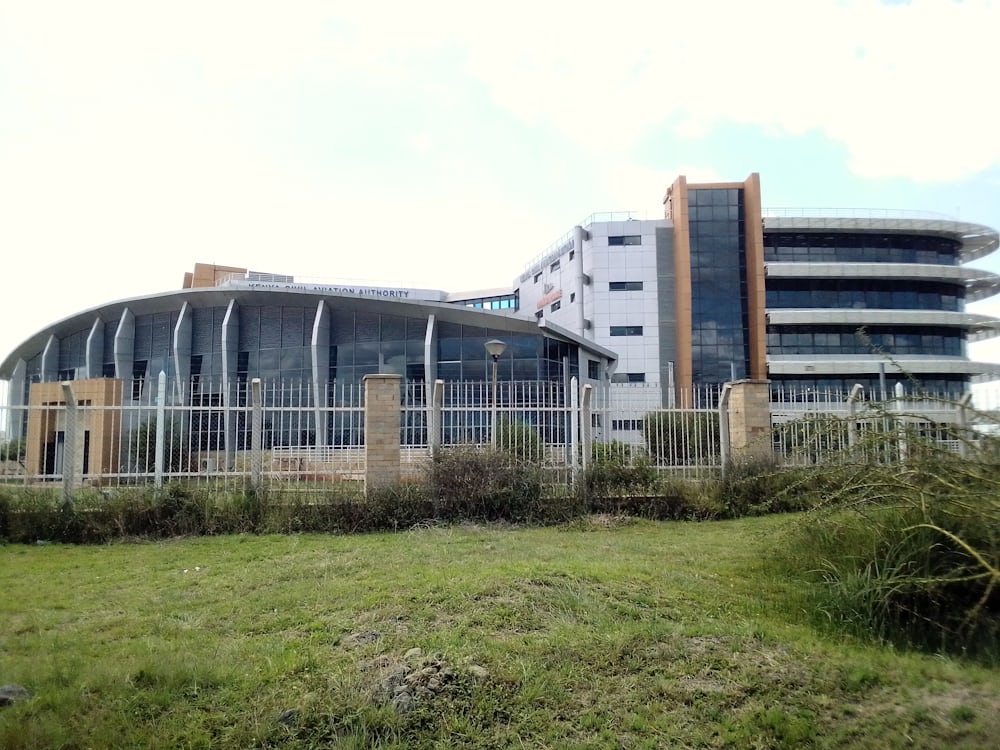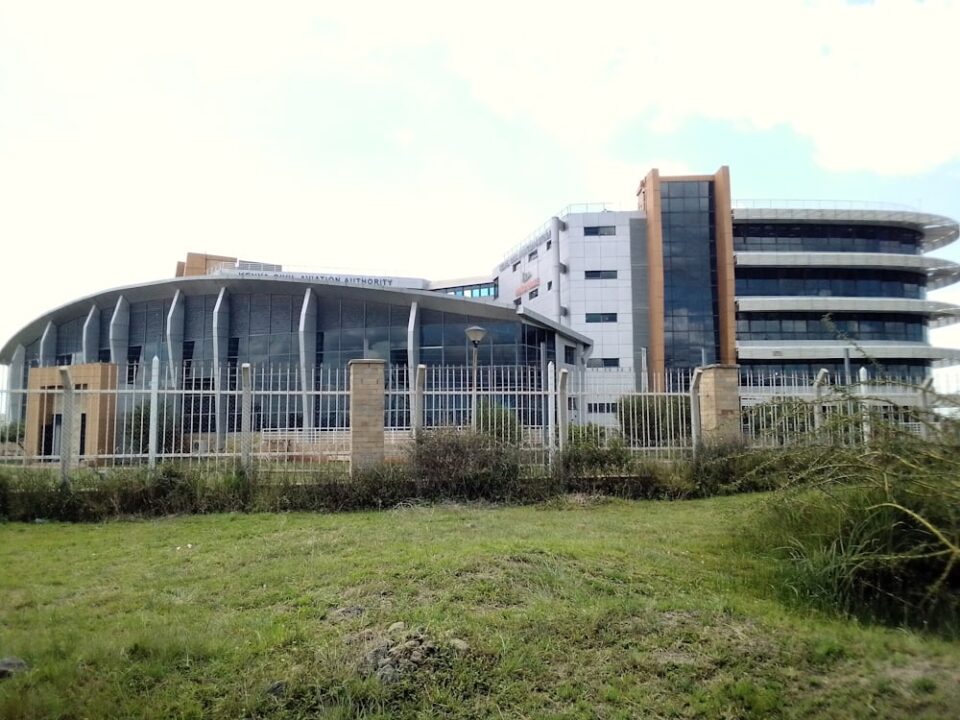Kenyatta University deputy vice chancellor for academics has announced the suspension of all classes in the institution to allow time for mourning students who perished in the tragic road accident in Voi. In a memo dated March 19, 2024, the deputy VC noted that the three days break will give ample time for the students and the entire KU fraternity to mourn the students who died in the accident on March 18, 2024.
It is with profound sorrow and sadness that I inform the University community of the tragic road accident involving our students from the Department of Health Management and Informatics in the School of Health Sciences yesterday 18th March 2024 in which we lost eleven (11) students.
Eleven (11) students were also critically injured and are being airlifted to Avenue Hospital, Parklands: and another sixteen (16) with minor injuries are being transported to the same Hospital.
Arrangements are also being made to transport the remains of the eleven (11) students to Kenyatta University Funeral Home along Thika Super Highway.In the meantime, the university has set up a help desk at Business Students Services Centre (BSSC) Room 151, and a mobile phone number to respond to queries and offer support during this challenging time.
Out of the 42 students who were injured during the accident, 11 were in critical condition, prompting doctors at the Moi County Referral Hospital in Voi to refer them for specialized treatment in Nairobi. Meanwhile, Kenyatta University Vice Chancellor Prof. Paul Wainaina visited the accident survivors on Tuesday March 19, 2024 at the Moi County Referral Hospital in Voi.
On behalf of the University Council and the University Management Board, I wish to convey our deepest heartfelt condolences to the families of those who have lost loved ones in this tragic accident. Our thoughts and prayers are with you all,” said Prof. Wainaina.At the same time, Taita Taveta governor Andrew Mwadime noted that the medical bill for all Kenyatta University accident survivors will be waived by the county government.
Kenyatta University’s recent decision to suspend all classes for three days following a tragic road accident at Maungu, in Voi, reflects a poignant gesture to honor the lives of students lost in the incident. This decision not only demonstrates the university’s commitment to its students but also underscores the profound impact of such tragedies on academic communities.
In this essay, we will delve into the circumstances surrounding the accident, explore the significance of Kenyatta University’s response, and analyze the broader implications of such gestures in fostering solidarity and healing within educational institutions.
The Maungu Road Accident: Understanding the Tragedy
On Monday, tragedy struck when a fatal road accident occurred at Maungu, located in Voi. The accident claimed the lives of several students, casting a shadow of sorrow and disbelief over the Kenyatta University community.
Details surrounding the accident, including its cause and specific circumstances, are still under investigation. However, the immediate aftermath prompted a swift response from university authorities, signaling a moment of collective mourning and reflection.
Significance of Kenyatta University’s Decision
The decision to suspend all classes for three days in honor of the students who perished in the Maungu road accident exemplifies a compassionate and empathetic approach to crisis management.
By prioritizing the emotional well-being of its students and faculty, the university acknowledges the profound impact of loss on the community. Moreover, this gesture underscores the importance of recognizing the human dimension of tragedies beyond their immediate implications on academic schedules.
In suspending classes, Kenyatta University sends a powerful message of solidarity and support to the families and friends of the deceased students. It acknowledges their grief and provides space for collective mourning, allowing the community to come together in remembrance and reflection. Such actions foster a sense of belonging and camaraderie within the university, reaffirming its commitment to the holistic well-being of its members.
Implications for Healing and Resilience
In times of tragedy, gestures of solidarity and empathy play a crucial role in fostering healing and resilience within academic communities.
By suspending classes, Kenyatta University creates an environment where students and faculty can process their emotions, seek comfort in each other’s presence, and find strength in unity. This period of reflection allows individuals to honor the memories of those lost while also reaffirming their bonds as a community.
Moreover, the suspension of classes provides an opportunity for the university to implement support services and resources to assist those affected by the tragedy.
Counseling services, memorial gatherings, and outreach initiatives can help facilitate healing and provide avenues for individuals to express their grief and seek support. In doing so, Kenyatta University demonstrates its commitment to the holistic well-being of its members and reinforces a culture of care and compassion within the institution.
Broader Implications for Academic Institutions
The decision of Kenyatta University to suspend classes in tribute to the students lost in the Maungu road accident carries broader implications for academic institutions worldwide.
It highlights the importance of prioritizing the emotional and mental health of students and faculty, especially in the face of unforeseen tragedies. By acknowledging the human dimension of crisis situations, universities can foster a culture of empathy and resilience that transcends academic pursuits.
Furthermore, gestures of solidarity and support serve to strengthen the bonds within academic communities, fostering a sense of belonging and collective responsibility. In times of adversity, these bonds become invaluable sources of support, enabling individuals to navigate challenges with courage and resilience.
Thus, the decision of Kenyatta University serves as a powerful example for other institutions to emulate, emphasizing the importance of compassion and solidarity in times of crisis.
Kenyatta University’s decision to suspend all classes for three days in honor of the students who lost their lives in the Maungu road accident reflects a compassionate and empathetic response to tragedy. By prioritizing the emotional well-being of its members and fostering a sense of solidarity and support, the university demonstrates its commitment to the holistic development of its community.
This gesture carries broader implications for academic institutions worldwide, highlighting the importance of empathy, resilience, and collective action in times of crisis. As the Kenyatta University community mourns the loss of its beloved students, may this period of reflection serve as a catalyst for healing, unity, and renewed purpose.
Expanding further on the significance of Kenyatta University’s decision to suspend classes, it’s essential to consider the ripple effects of such a gesture. Beyond the immediate impact on academic schedules, this action creates a space for introspection and empathy, fostering a culture of care and compassion within the university community.
By acknowledging the depth of sorrow and loss experienced by those directly affected by the tragedy, Kenyatta University reaffirms its commitment to supporting its members through times of adversity.
Moreover, the suspension of classes allows for the implementation of comprehensive support services aimed at addressing the multifaceted needs of individuals coping with grief and trauma. Counseling sessions, support groups, and memorial services offer avenues for healing and remembrance, facilitating a sense of closure and resilience among students, faculty, and staff.
Additionally, outreach initiatives can extend support to the families and loved ones of the deceased, demonstrating solidarity and compassion beyond the confines of the university campus.
In embracing a holistic approach to crisis management, Kenyatta University sets a precedent for other academic institutions to follow. By prioritizing the well-being of its community members, universities can cultivate environments that nurture emotional intelligence, empathy, and resilience. In doing so, they not only fulfill their educational mandates but also serve as beacons of hope and support in times of darkness.
Furthermore, the decision to suspend classes serves as a reminder of the interconnectedness of individuals within academic communities. In times of crisis, shared experiences of grief and loss can forge bonds that transcend academic pursuits, fostering a sense of belonging and collective identity. Through acts of solidarity and compassion, universities reaffirm their roles as pillars of strength and support, empowering individuals to navigate challenges with courage and dignity.
In the wake of the Maungu road accident, Kenyatta University’s response exemplifies the power of empathy and unity in healing wounds and rebuilding spirits. As the university community mourns the loss of its cherished members, may this period of reflection serve as a testament to the resilience of the human spirit and the enduring bonds of compassion that unite us all.


